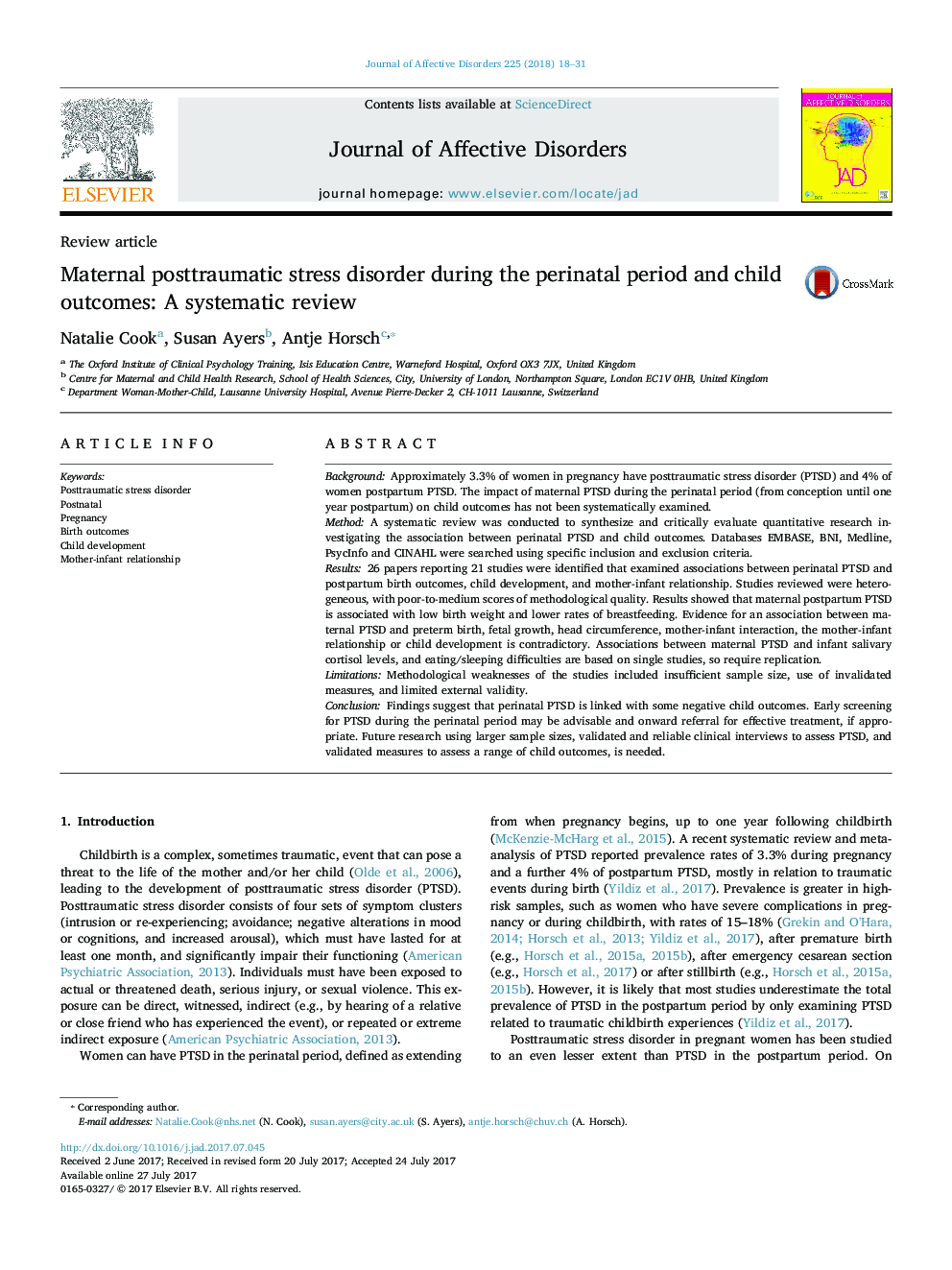| کد مقاله | کد نشریه | سال انتشار | مقاله انگلیسی | نسخه تمام متن |
|---|---|---|---|---|
| 5721684 | 1608100 | 2018 | 14 صفحه PDF | دانلود رایگان |
- Postpartum PTSD is associated with low birth weight and lower rates of breastfeeding.
- Links with infant cortisol and eating/sleep problems are reported in single studies.
- Mixed evidence for associations with preterm birth, fetal growth, head circumference.
- Evidence regarding mother-infant interaction or child development is inconclusive.
BackgroundApproximately 3.3% of women in pregnancy have posttraumatic stress disorder (PTSD) and 4% of women postpartum PTSD. The impact of maternal PTSD during the perinatal period (from conception until one year postpartum) on child outcomes has not been systematically examined.MethodA systematic review was conducted to synthesize and critically evaluate quantitative research investigating the association between perinatal PTSD and child outcomes. Databases EMBASE, BNI, Medline, PsycInfo and CINAHL were searched using specific inclusion and exclusion criteria.Results26 papers reporting 21 studies were identified that examined associations between perinatal PTSD and postpartum birth outcomes, child development, and mother-infant relationship. Studies reviewed were heterogeneous, with poor-to-medium scores of methodological quality. Results showed that maternal postpartum PTSD is associated with low birth weight and lower rates of breastfeeding. Evidence for an association between maternal PTSD and preterm birth, fetal growth, head circumference, mother-infant interaction, the mother-infant relationship or child development is contradictory. Associations between maternal PTSD and infant salivary cortisol levels, and eating/sleeping difficulties are based on single studies, so require replication.LimitationsMethodological weaknesses of the studies included insufficient sample size, use of invalidated measures, and limited external validity.ConclusionFindings suggest that perinatal PTSD is linked with some negative child outcomes. Early screening for PTSD during the perinatal period may be advisable and onward referral for effective treatment, if appropriate. Future research using larger sample sizes, validated and reliable clinical interviews to assess PTSD, and validated measures to assess a range of child outcomes, is needed.
Journal: Journal of Affective Disorders - Volume 225, 1 January 2018, Pages 18-31
